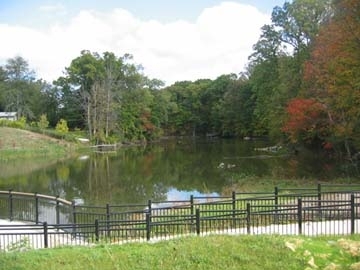Ecological burn set for November 29 at Carpenter Lake and Valley Woods nature preserves
November 28, 2017 | Posted In: Parks & Rec
The city of Southfield, in partnership with PlantWise, LLC and the Alliance of Rouge Communities, will facilitate a prescribed ecological burn at Carpenter Lake Nature Preserve and Valley Woods Nature Preserve on Wednesday, November 29 from 12 noon through dusk. Carpenter Lake Nature Preserve will be closed to the public beginning at 11 a.m.
Ecological burns are used to promote healthier prairie and woodlands for plant and animal life. Fire used to be a regular and frequent component of the landscape in southern Michigan and many of the local ecosystems such as prairies, dry oak-hickory woodlands and certain wetlands burned regularly. Fire effectively stimulated many of the plant species to grow more vigorously by darkening the soil surface and thereby increasing the soil temperature, adding nutrients and discouraging plants that were not adapted to fire’s heat.
Today, many undesirable plants have invaded the native fire-adapted ecosystems, typically decreasing a site’s diversity of plants and consequently the animals those plants support. The aggressive spread of weeds such as buckthorn, autumn olive, spotted knapweed, garlic mustard or reed canary grass is symptomatic of a disruption to a vital process in the natural landscape. In many cases, bringing fire back into a site can begin to restore the site to its former splendor.
Prescribed burning is safe and conducted with the cooperation and approval of the local fire chief. Prior to burning, the city will create “burn breaks,” which are fuel-free areas that the fire will not cross. The burn is done in a slow and deliberate manner, with safety equipment on-hand to monitor and control its spread.
The ecological burn is funded by a grant from the Great Lakes Restoration Initiative (GLRI), which focuses on the most significant ecosystem problems in the Great Lakes. The GLRI is the largest investment in the Great Lakes in two decades and focuses on five key areas of concern: cleaning up toxic substances; combating invasive species; promoting nearshore health by protecting watersheds from polluted run-off; restoring wetlands and other habitats; and tracking progress, education and work with strategic partners. For more information on the GLRI, visit www.glri.us.
For more information, call Storm Water Manager Brandy Siedlaczek at 1-248-796-4806.
